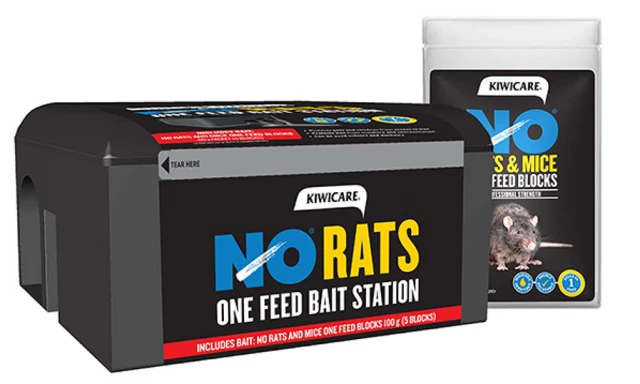Rodents Carry Disease
Zoonoses are diseases caught from animals. Wild rats and mice carry several diseases that can be passed on to humans. Rodent droppings and urine can carry serious disease. The most famous epidemic caused by the close association of rats with people is the Black Death which caused the death of millions in 14th century Europe. The disease was the plague caused by the bacterium Yersinia pestis.
Rodent zoonoses include, but are not limited to:
Plague
Plague still infects and kills people worldwide but thankfully not in New Zealand. But there are other serious diseases that can be caught from wild (and pet) rodents in New Zealand.
Leptospirosis - Weil's Disease
Leptospirosis, also known as Weil's disease, is caused by the bacteria Leptospira. It is carried by rodents and other wild animals. Infection is through contact with water, food, or soil containing urine from an infected animal. Cuts or breaks in the skin will also allow in infection. Infected people experience a range of symptoms from mild or no illness to severe or life-threatening meningitis, liver damage and kidney failure. Infection can be prevented by avoiding contact with water that might be contaminated with animal urine.
Salmonellosis
Salmonellosis is commonly associated with poor hygiene or inadequately cooked food, but can also be acquired from rodents. Salmonella bacteria may be found in the faeces of many animals including wild and pet rodents. Infection can be contracted by people who do not wash their hands after contact with rodent droppings or if food, drink or eating utensils are contaminated with rodent droppings.
Rat Bite Fever (RBF)
Rat Bite Fever is caused by Streptobacillus bacteria that is found in the mouth of apparently healthy rats and mice. People are infected through bites or scratches from rodents or may also become ill after eating contaminated food or drink or through close contact with rodents. In cases of bites and scratches, the wound often has healed before symptoms begin (2-10 days after the bite). Antibiotic treatment for this disease is very effective. Illness in those who do not seek medical attention and treatment can be very serious and result in death; therefore, it is important to immediately clean and disinfect wounds and promptly seek medical attention after any rodent bite or scratch.
Q Fever Rickettsial Disease
Rickettsial disease in humans is caused by a number of related bacteria of the genus Rickettsia that have blood-sucking parasite vectors. Symptoms include flu-like fever, headache and lethargy.
How to Prevent Infections from Rats and Mice
- Stop rats and mice infesting your home or garden. See the 1-2-3 Rodent Control Programme and these short videos.
- Wear gloves when carrying out pest control against rodents or working in areas where there are signs rats or mice a have been active. Wash hands after handling anything that rats or mice may have urinated on. Rodents continually dribble urine where ever they travel.
- In roof voids and other enclosed spaces where rodents have been, it is sensible to wear a mask as dust may carry disease organisms.
- Clean up rodent droppings where ever they are found and disinfect surfaces where rodents could have travelled.
- Dispose of any food that has been eaten or may have been contaminated by rodents.
- If bitten or scratched by rodents always clean and disinfect wounds and seek medical attention immediately.


